经典问题解析
Posted 学习只为旅行
tags:
篇首语:本文由小常识网(cha138.com)小编为大家整理,主要介绍了经典问题解析相关的知识,希望对你有一定的参考价值。

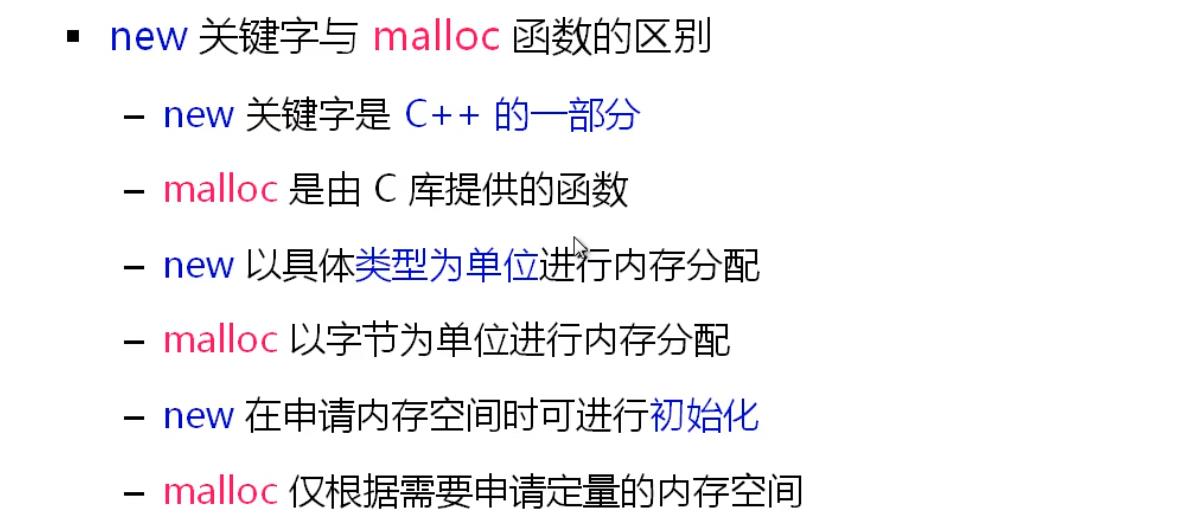
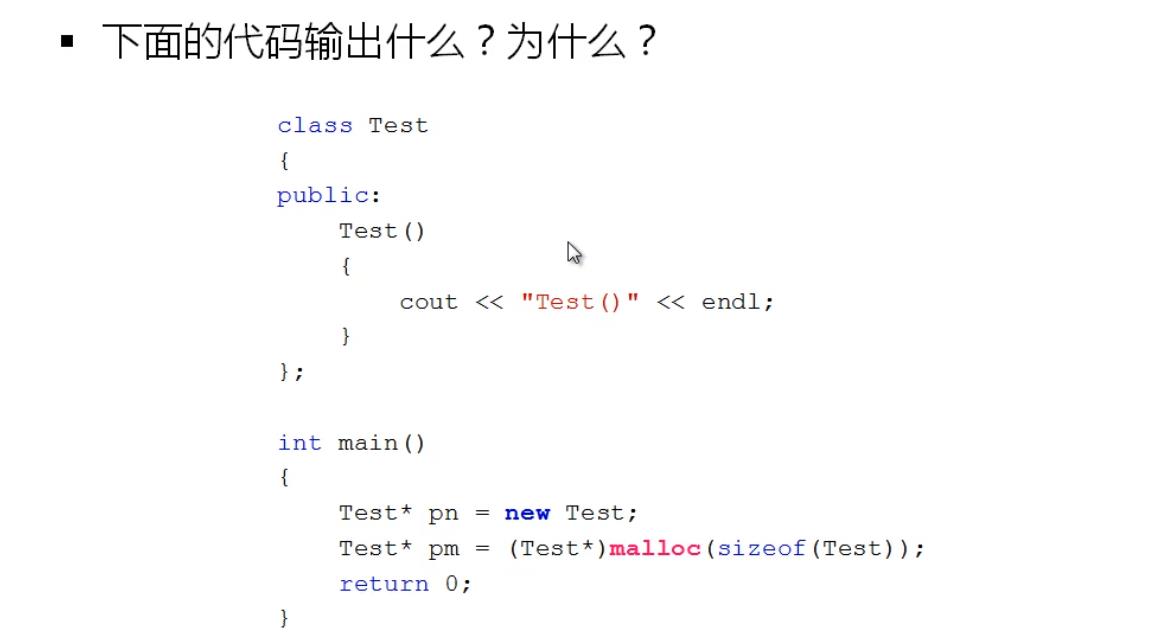
#include <iostream>
#include <string>
#include <cstdlib>
using namespace std;
class Test
{
int* mp;
public:
Test()
{
cout << "Test::Test()" << endl;
mp = new int(100);
cout << *mp << endl;
}
~Test()
{
delete mp;
cout << "~Test::Test()" << endl;
}
};
int main()
{
Test* pn = new Test;//生成合法对象
Test* pm = (Test*)malloc(sizeof(Test));//仅仅在堆空间申请一片内存,不是对象
delete pn;
free(pm);
return 0;
}
free可以释放new的空间,但是不会调用析构函数,所以有可能造成内存泄漏
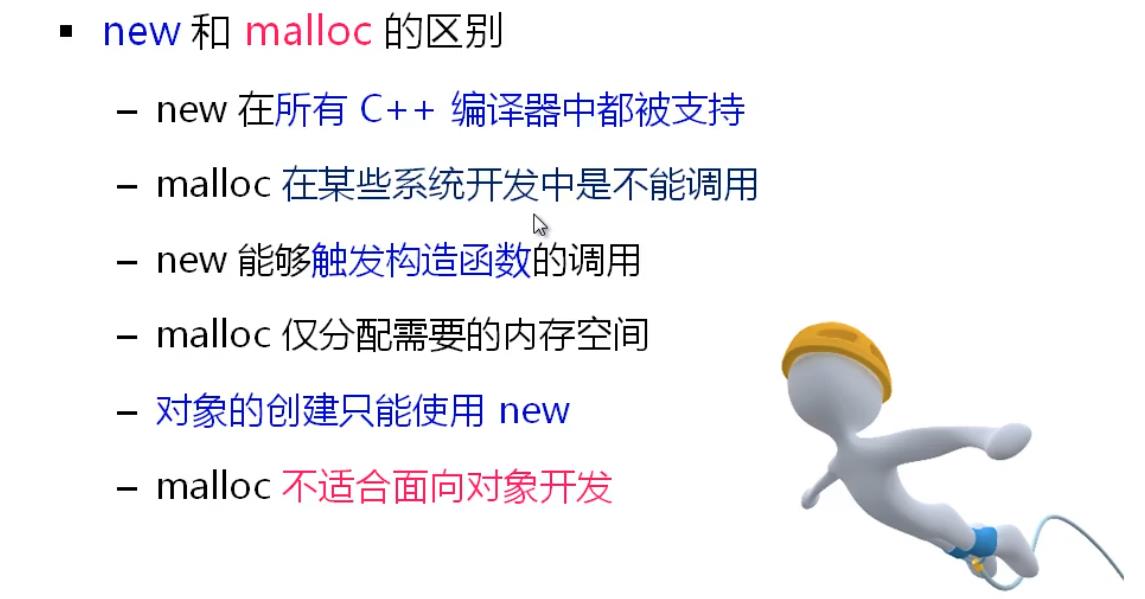
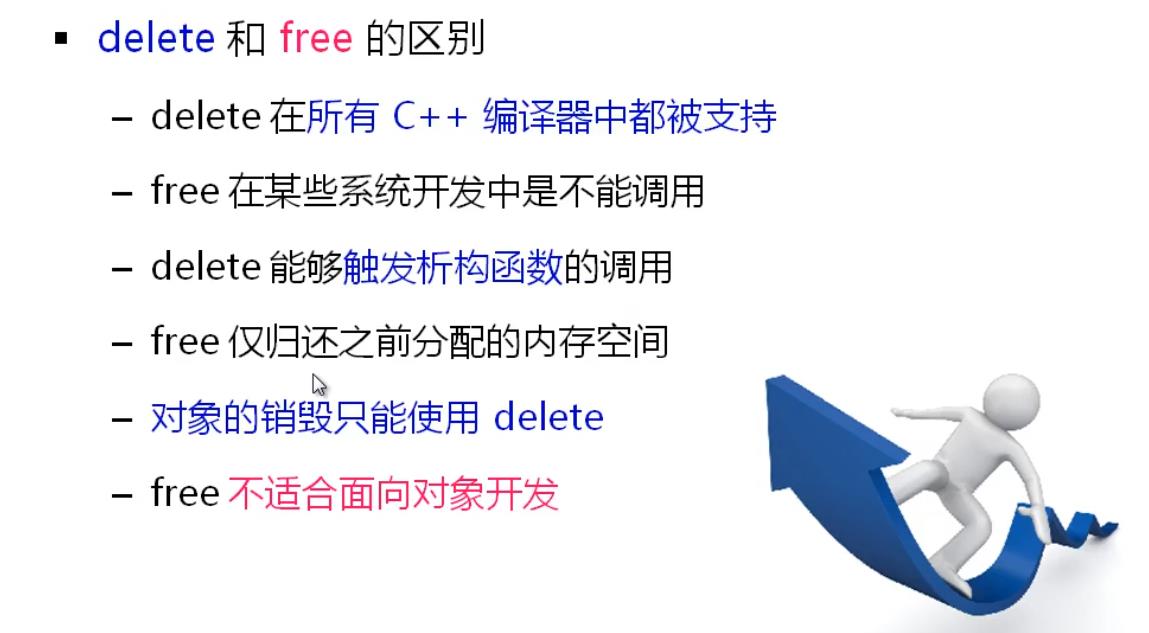
构造 析构 虚函数


将析构函数声明为虚函数有啥用?
#include <iostream>
#include <string>
using namespace std;
class Base
{
public:
Base()
{
cout << "Base()" << endl;
func();
}
virtual void func()
{
cout << "Base::func()" << endl;
}
virtual ~Base()
{
func();
cout << "~Base()" << endl;
}
};
class Derived : public Base
{
public:
Derived()
{
cout << "Derived()" << endl;
func();
}
virtual void func()
{
cout << "Derived::func()" << endl;
}
~Derived()
{
func();
cout << "~Derived()" << endl;
}
};
int main()
{
//由于父类析构函数为虚函数,所以调用delete的时候
//编译器不会暴力的直接调用Base中的析构函数,而是
//先调用p指向的对象空间中的析构函数,即子类析构函数
//再调用父类的析构函数(构造与析构顺序相反!)
Base* p = new Derived();
// ...
delete p;
return 0;
}

如果父类析构函数不是虚函数,那么存在像上面注释提到的情况的话,编译器会跳过子类析构函数,直接执行父类的析构函数,会导致内存泄漏!后果不堪设想!那么这就是析构函数成为虚函数的意义所在!



强制类型转换

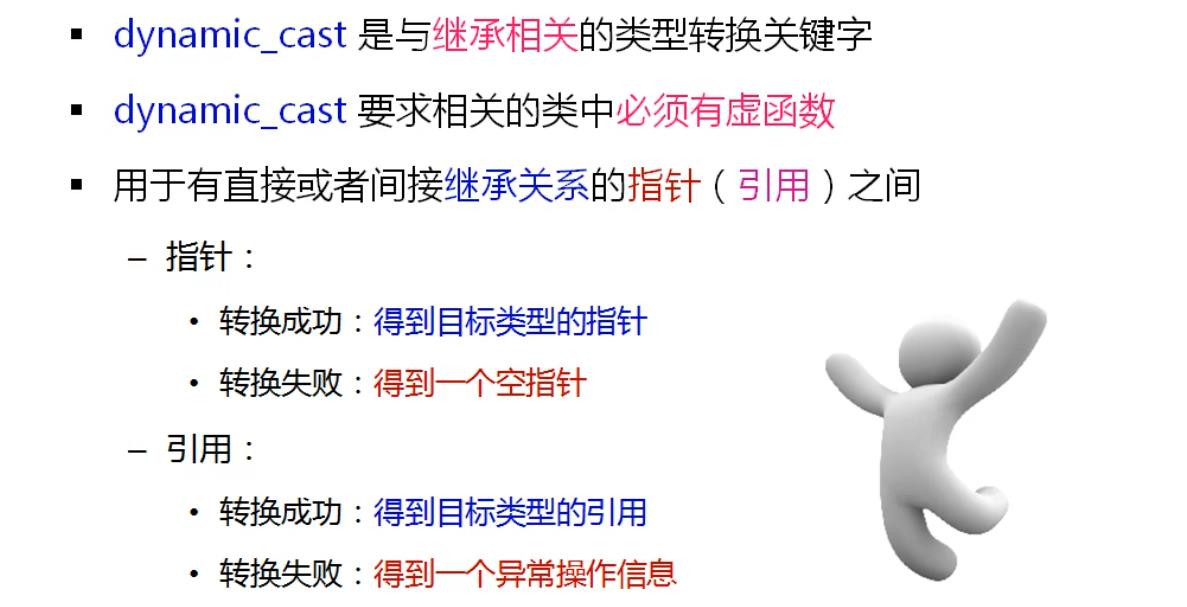

#include <iostream>
#include <string>
using namespace std;
class Base
{
public:
Base()
{
cout << "Base::Base()" << endl;
}
virtual ~Base()
{
cout << "Base::~Base()" << endl;
}
};
class Derived : public Base
{
};
int main()
{
//子类的指针指向父类是不合法的!
Base* p = new Base;
Derived* pd = dynamic_cast<Derived*>(p);
//这里的强制类型转换没有成功,返回NULL
if( pd != NULL )
{
cout << "pd = " << pd << endl;
}
else
{
cout << "Cast error!" << endl;
}
delete p;
return 0;
}

这个倒是合法的!

小结

以上是关于经典问题解析的主要内容,如果未能解决你的问题,请参考以下文章